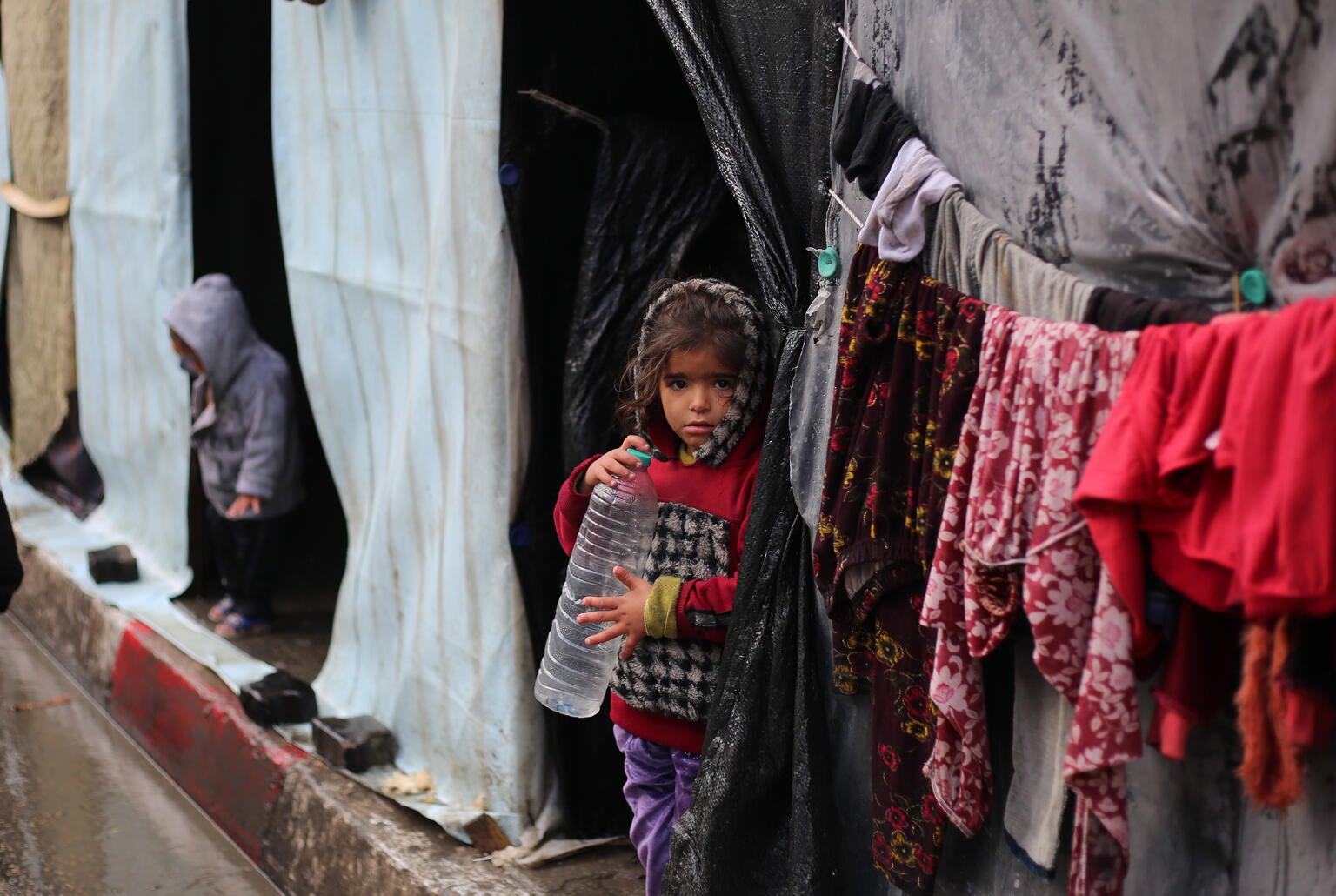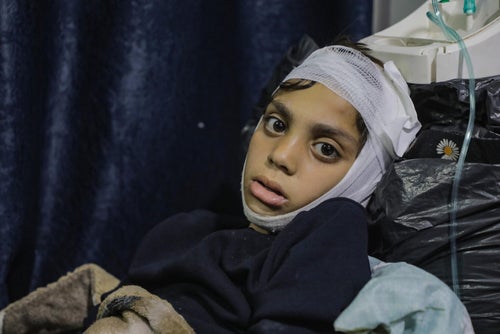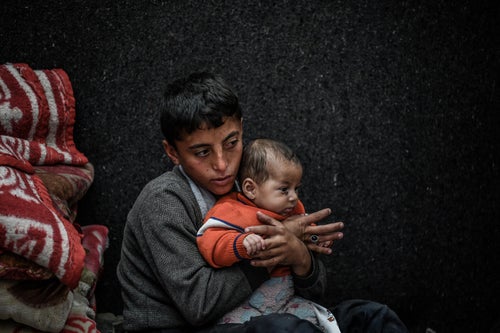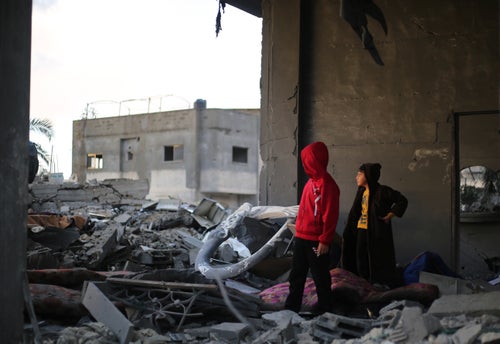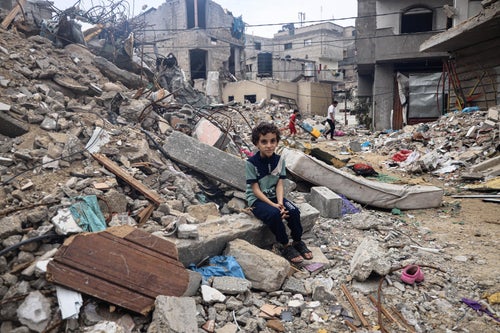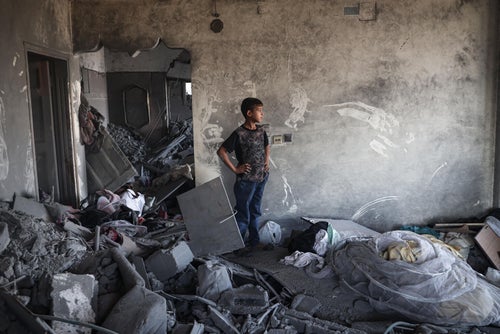Ceasefire provides a fragile opportunity to deliver urgent supplies to children in immense need.
After two years of relentless bombardment, deprivation, and unimaginable loss, the ceasefire in Gaza brings hope to families. But the needs of children are immense, and severe malnutrition remains a deadly threat, with the entire population under five at risk of acute malnutrition.
The road to recovery will be long and complex, but this ceasefire offers a fragile but vital opportunity to reach children and families with urgently needed lifesaving aid. UNICEF is on the ground, scaling up our response to deliver nutrition, medicine, clean water, warm clothing, and shelter to those in need. But we urgently need your help to reach more children and families.
Please donate today to support our ongoing efforts during this critical moment of hope and rebuilding.
Since violence escalated in October 2023, tens of thousands have been killed and many more injured, while every child in the Gaza Strip has been exposed to deeply distressing events and trauma marked by widespread destruction, relentless attacks, displacement, and severe shortages of essential necessities such as food, water, and medicine.
Children in Gaza who have survived unimaginable war atrocities, are now dying of starvation and dehydration. They are being deprived of food, water and health care while children in Gaza face the threat of famine. Polio has also returned to Gaza after 25 years, as healthcare professionals worked alongside UNICEF and the World Health Organisation to prevent a devastating outbreak.
Large parts of Gaza's infrastructure, including critical water and sanitation systems, have been reduced to rubble. Over 1.9 million people are internally displaced, around half of them children, and many have sought refuge in overcrowded shelters with extremely limited access to water, sanitation and hygiene – conditions that are especially dangerous for young children.
Access is difficult and limited, but our teams won’t give up trying to get critical supplies to children.
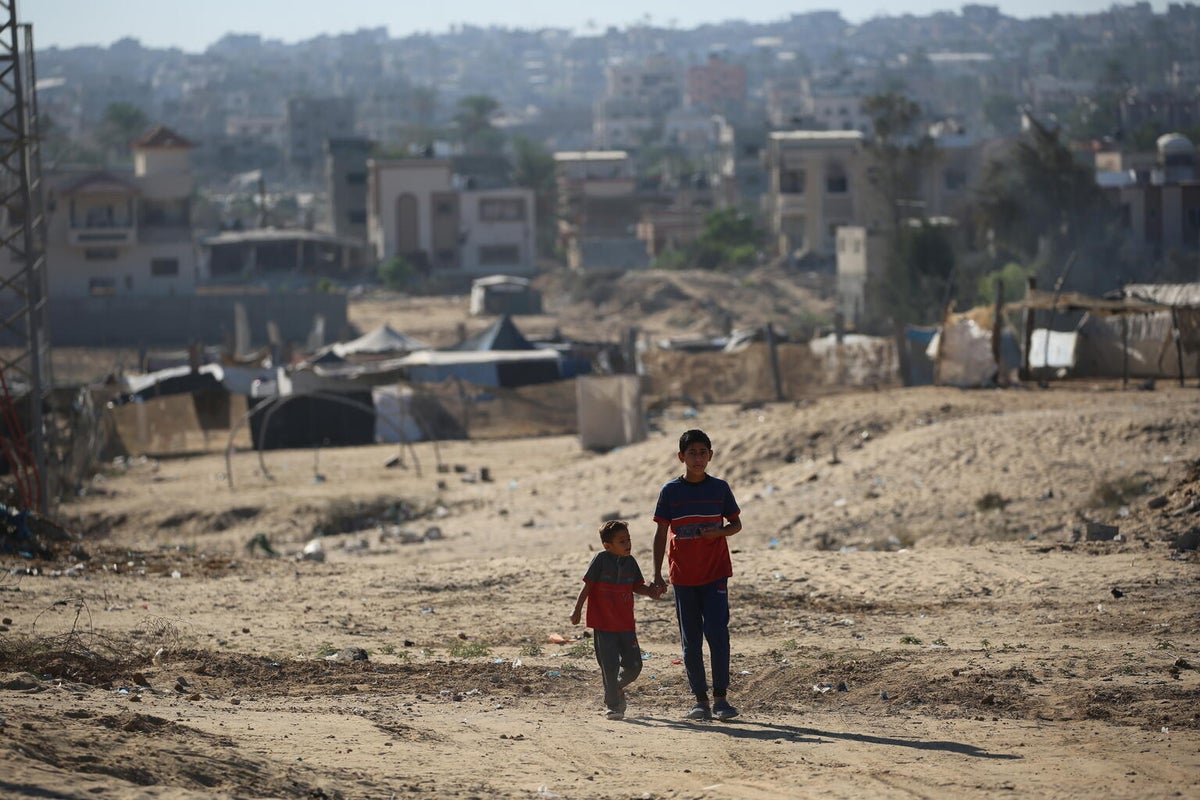
After two years of war, families return to rubble

Gaza’s malnutrition crisis
After two years of devastating conflict, children and their families in Gaza continue to face immense hardship. Even with the recent ceasefire, food and essential supplies remain desperately low. Every day, parents and carers are doing everything they can to keep their children safe, but severe malnutrition remains a deadly threat as it continues to spread rapidly across the Gaza Strip.
"In my 20 years with the United Nations, I have never seen such devastation. Just chaos and ruin, with rubble and debris scattered in every single direction. Utter annihilation. The deprivation, the forced desperation, means despair pervades the population. And people's nerves are shattered amid unrelenting attacks."
100%
of Gaza’s child population needs some form of mental health and psychosocial support.
1 in 5
Gazans are facing starvation, while the entire population is facing high levels of acute food insecurity.
Despite the challenging humanitarian and security situation, UNICEF and partners are actively present in Gaza, providing immediate lifesaving humanitarian support, including delivering medical supplies, ready-to-use therapeutic food, tents, blankets, hygiene kits, bottled water, fuel for the operation of critical water, hygiene, and sanitation facilities, water treatment essentials, and mental health and psychosocial support. UNICEF efforts also encompass closely monitoring grave child rights violations and providing child-sensitive humanitarian cash assistance.
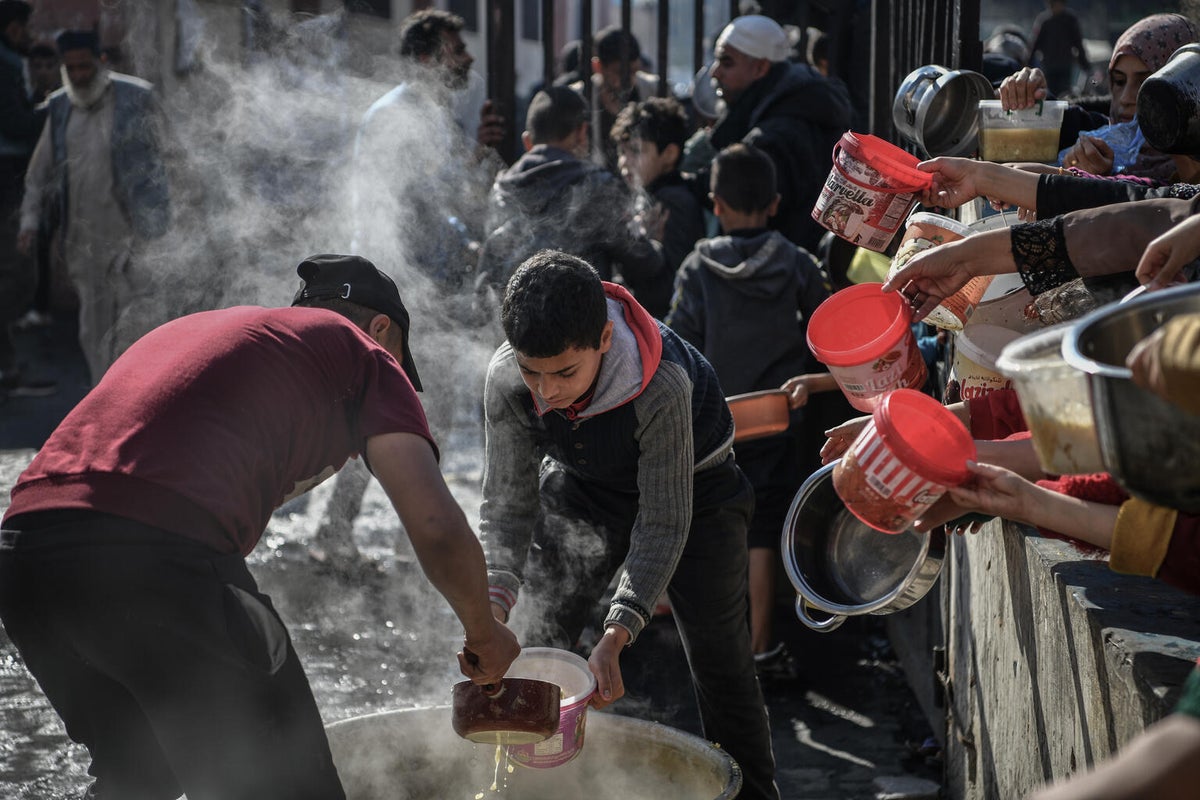
What is UNICEF doing for children in Gaza?
Before the violence escalated in October 2023, Gaza was already facing a complex and challenging humanitarian situation with 1.1 million children in need of humanitarian aid – accounting for approximately half the population.
UNICEF has been on the ground in the Gaza and the West Bank for the past four decades, working to uphold the rights of all children to access services and protection.
Our objective is to ensure that every child irrespective of background or circumstance, has an equal chance to fulfil their potential even in times of conflict.
A lasting political solution to the ongoing crisis for children is needed now more than ever. Children have the right to grow up in peace, free from the shadow of violence.
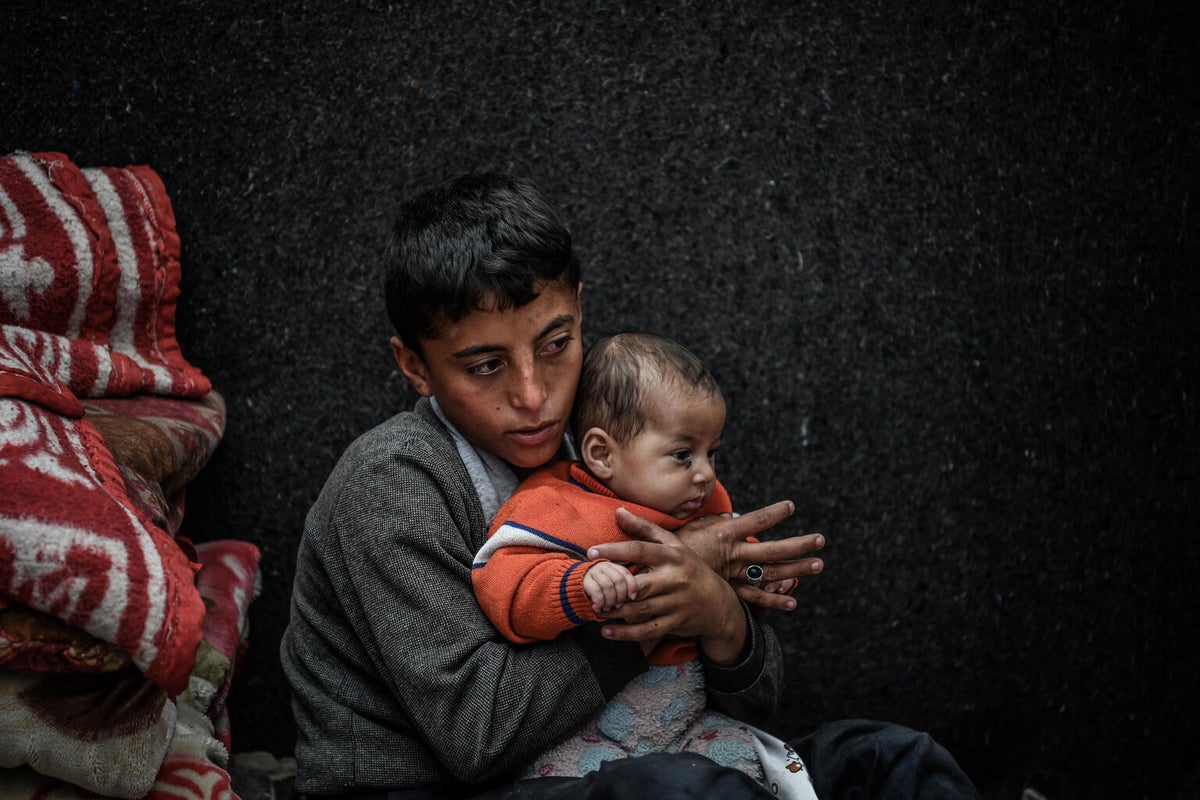
UNICEF is continuing to respond to the critical needs of children in Gaza, but access is difficult and dangerous.
UNICEF has been working around the clock to deliver desperately needed lifesaving supplies and support services, including malnutrition screening and psychosocial support, to children and their families since the conflict escalated in October 2023.
We continue to move lifesaving supplies into Gaza and across the strip wherever logistically possible due to border restrictions, the widescale destruction of the infrastructure and the threat posed by unexploded ordnances.
What is UNICEF doing for children in Israel?
No matter where they live, a child is a child. UNICEF is calling for all parties to unconditionally protect children from harm and afford them the special protection to which they are entitled, in accordance with their obligations under international humanitarian and human rights law.
Israeli children displaced by this conflict are seeking shelter in schools and emergency shelters and UNICEF is concerned for their safety and protection.
In high-income countries like Israel, governments generally have adequate capacity and resources to respond to emergencies. In these countries, UNICEF programs are not required unless requested by the Government, which Israel has not requested.
This UNICEF Australia appeal is specifically for children in Gaza where UNICEF has teams and programs.
Our work to protect and advocate for all children across Israel, Gaza and the West Bank will continue. Every single child, no matter who or where they are, must be protected.
In over 30 countries where UNICEF does not conduct programmatic activities, National Committees for UNICEF (like us at UNICEF Australia) serve as the dedicated voice of UNICEF and work to promote children's rights. The Israeli Fund for UNICEF was established in 2009 and works to raise awareness of children’s rights in Israel and to raise funds for UNICEF’s lifesaving work across the world.
Learn more about the work we do in Israel.
We are always there for children, no matter where they are
UNICEF is there for every child, amidst conflict and natural disasters – no matter where they are. UNICEF works in over 190 countries and territories to save children's lives, to defend their rights, and to help them fulfil their potential, from early childhood through adolescence. And we never give up.
But we can’t do it alone. We need your help today.

Children of Gaza Crisis
The ceasefire brings hope for children in Gaza, but the needs remain urgent. Help us scale up our response.
Stories from Gaza
Every child has the right to be healthy, educated, and live safe from harm.


